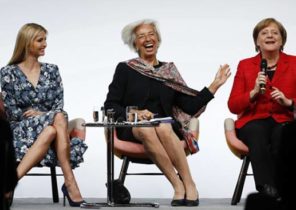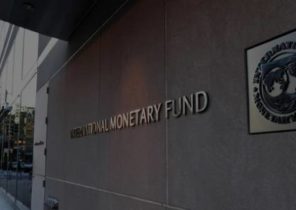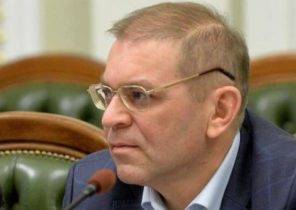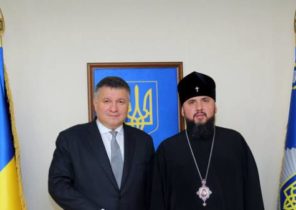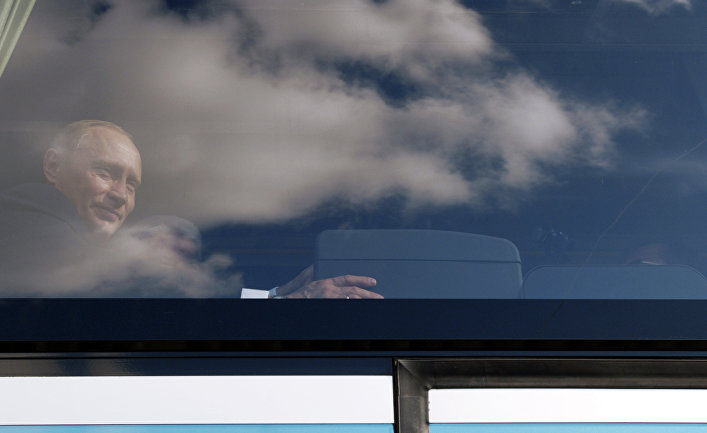
Many Americans breath when they see Donald trump mockingly puts the word “intelligence” in quotation marks, referring to the American intelligence community. It seems unacceptable to challenge the wisdom and experience of institutions, which are obliged to protect their safety and freedom. Being a Russian, I just shrug: I never believe a single word emanating from representatives of intelligence services of my country. However, this cultural gap is narrowing. In Western society now rapidly declining level of trust that gradually brings them closer to the post-Communist, Eastern European model.
Two decades ago, Francis Fukuyama (Francis Fukuyama) is a man who blithely declared that the story comes to an end and that liberal-democratic Paradise? — found a link between levels of confidence and prosperity. He noted that the society, whose members have more confidence, such as the US, Japan and Germany, achieving better results compared with societies where the radius of trust rarely extends beyond the boundaries of the family, such as China, Italy, France or Korea. While this claim was not clearly supported by economic data, but at least now we can say that the more trust in society, the more comfortable to live in it — mainly because you don’t have to bust my ass to prove the purity of their intentions.
Communism destroyed trust in all the countries to which it touched. Controlling everyone and everything and doesn’t trust anyone, the government set the tone for social interactions and actually pushed the people to fight and deceive each other. The trust established between members of the family and small communities whose members knew each other, but even there was often a Snitch. The consequences of destroyed trust survived communism. Many of the researchers who studied this phenomenon, came to the conclusion that this had an impact on economic development: if the institutions and interpersonal relationships do not bring prosperity, they are not trustworthy. But if people and institutions can’t be trusted, they have no incentive to seek the well-being. “There may be a complex, probably cyclical, self-reinforcing causal mechanism of the relationship between the level of economic development and overall levels of interpersonal and institutional trust,” wrote Zsolt Boda (Zsolt Boda) and Gergo Miedwie-Balint (Gergo Medve-Balint) in their 2014 paper in which they tried to figure out why Central and Eastern Europe, the level of different types of trust are lower than in Western Europe.
Part of the former Soviet space came in this vicious circle. Ukraine, where more than half the population trusts the voluntary sector, the army and the Church, faced with serious difficulties in the reform process, because the majority of the population believes that the government is guided solely by its own interests. Companies with low levels of trust are not well suited for the development of democracy: it’s very quickly slipping into the internal struggle and paralysis. And this phenomenon is found not only in the post Communist space: the Italians and the Greeks, whose level of confidence in the government the same or even below the average level for Eastern Europe, managed to learn it on their own experience.
As a result, those countries where the level of trust is low, often willingly submit to a strong regime. Such authoritarian rulers like Russia’s President Vladimir Putin, rarely care about how to establish a relationship of trust: it is able to govern the country and by other methods, such as, for example, inciting hostility against alleged external enemies. Viktor Orban (Viktor Orban) in Hungary and Jaroslaw Kaczynski (jarosław Kaczynski) in Poland, too, moved along this path. However, monopoly in the power and empowerment of the government lead to excessive control and corruption, slow economic development and raise the mistrust in governments and among the people.
The process of destruction of confidence in the former Communist countries it is much easier to explain than the process of destruction of confidence in the United States. In 2014, Jean Tweng (Jean Twenge) and two of her colleagues published a study in which they concluded that the level of trust in institutions and people in the United States reached a historic low. In 1972-1974 46% of American adults agree with the statement that “most people can be trusted”, and in 2010-2012 the percentage of such people decreased to 33%. With regard to trust in institutions, the data that became available after the publication of the work in Tweng prove that its level increased only slightly after the financial crisis. As in Ukraine, Americans largely trust their army. However, the only two institutions, in addition to the army, which people tend to believe in the largest degree is small business and the police. The level of confidence in the media, the education system, the health system and the judicial system — not to mention the President and Congress have reached a sad low. Now in the US the level of people’s trust in some key institutions is even lower than in Russia — one of the most distrustful societies in the world.
In Russia and in the USA less than 50% of the population trust the major institutions.
Tweng and her colleagues argue that this trend is consistent with a lower level of concern for others and a lower level of civic engagement that are characteristic of the generation born in 2000-ies. However, this lack of confidence, in their opinion, is related to economic factors. “Rising levels of income inequality portends a decline in confidence and rising poverty portends the decline of confidence in institutions,” they write.
According to the company Edelman, which studied the level of trust from the beginning of the century, the level of trust in institutions in the United States yet not so low as in Eastern Europe, but the gap between them is quite small. The average level of trust in NGOs, government, media and business reaches 49% in the US, 39% in Russia and 35% in Poland. In the United States have received higher education, the Americans Harbor more trust in institutions than higher education in Eastern Europe. This explains the indignation of the educated Americans about confidence that trump has for the intelligence community — and the fact that I do not feel such resentment.
Edelman calls this the “gap in confidence” between the “informed part of society” and “mass population”. This gap is widening in most countries of the world, France, the United Kingdom and the United States are the three countries where it is increasing most rapidly. This helps to explain the amazing political upheavals that have occurred in these countries.
It is possible to consider the growing gap in trust the result of growing economic inequality, but I think that a lot of coincidences between the levels of economic well-being and confidence has led to the fact that scientists too simplistic to consider this issue, claiming that the trust level can be increased, reducing the level of inequality. People are not Pavlov’s dogs, they don’t just respond to economic incentives. Their trust in institutions is formed for a long period, and it takes time to earn the reputation of a reliable institution.
A successful army is easy to gain the trust of the public and gain authority. Meanwhile, leading media, which are too trying to follow the government line or trying too hard to be politically correct, as well as the intelligence community, which too openly responds to political signals and serious mistakes, as happened in Iraq, we have a very hard time. Now they need to put a lot of effort to regain the trust.
While in Eastern Europe, distrust is widespread, and its results are quite easy to predict, on the West, the relative confidence in the elite creates conditions for dangerous surprises. Trump and supporters of exit of the United Kingdom from the European Union won because they did not roll my eyes in front of the incredulous mass audience: they learned to think like the audience, and to see the institutions through the eyes of this audience.
There are three possible outcomes. One of them implies the emergence of figures that are to some extent a variation of Putin, Orban or Kaczynski: they will ignore the distrust of itself, will implement the program and to keep the people under control. Perhaps trump intends to go on this path, however, exists in America a system of checks and balances designed to resist the usurpers. The second scenario is the relative chaos that supporters of the exit of the United Kingdom from the European Union provoked in the country, whose institutions, it seemed, was too strong to allow that. Ukraine is a more extreme plot on this line. While no country has managed to successfully pass on the third, most difficult way — on the way to be followed by the West and which involves the restoration of General confidence in the basic institutions. As noted by Fukuyama, trust is easier to destroy than to restore.

